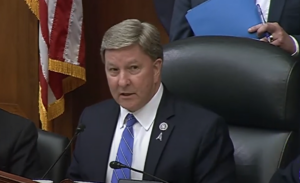
The House Armed Services Committee voted near unanimously just after midnight on Thursday to advance its $886 billion version of the fiscal year 2024 National Defense Authorization Act. The final vote followed more than 12 hours of debate on issues ranging from raising the level of Ukraine Security Assistance Initiative (USAI) funds to pressing the Air Force on the Space Command headquarters decision as well as approving a provision to establish a program of record for the sea-launched nuclear cruise…

 By
By 










